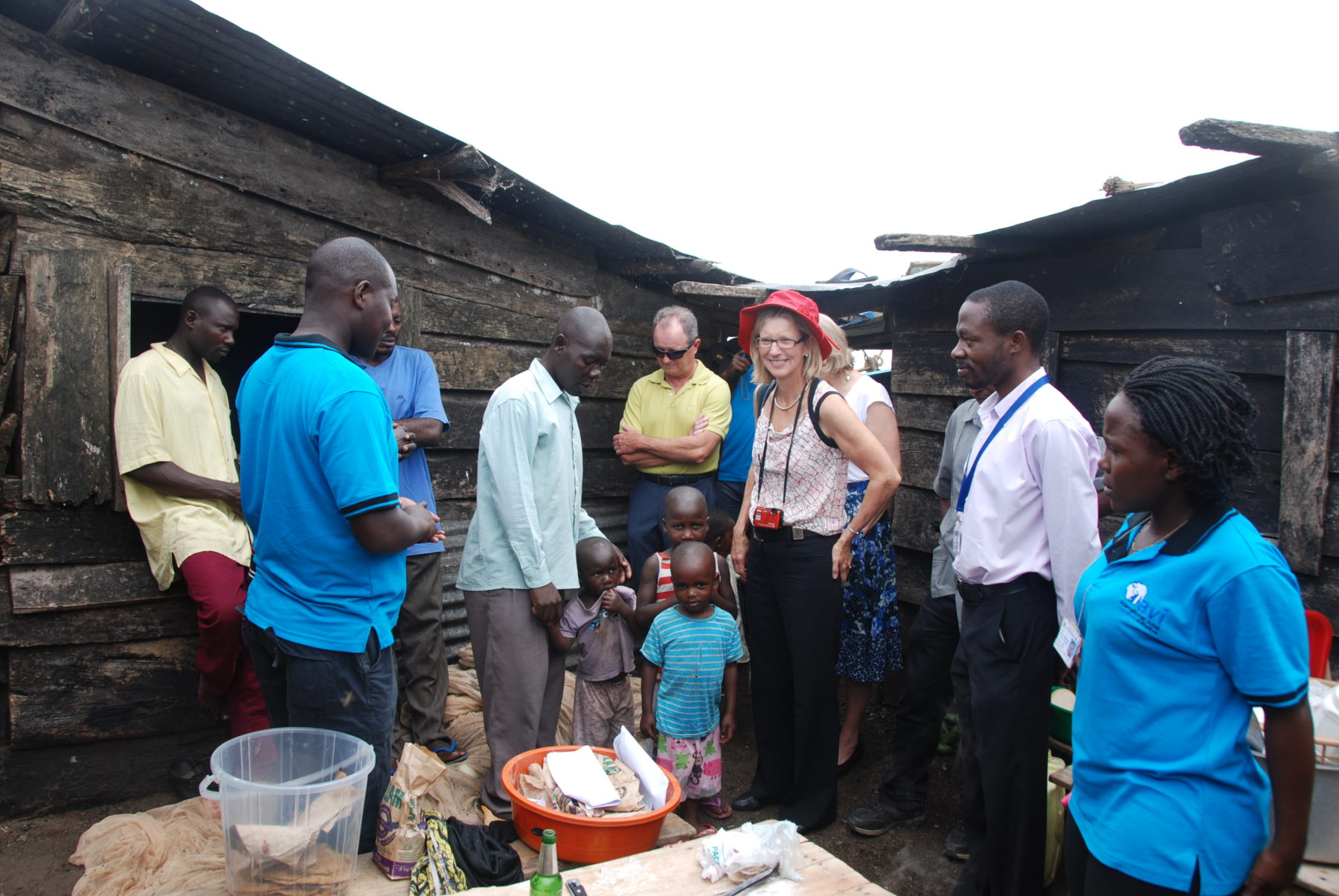Margaret G. McGlynn, Former President, Merck Vaccines; Former CEO, International AIDS Vaccine Initiative; and currently Board Director at Vertex Pharmaceuticals, Amicus Therapeutics, Orphan Technologies, and Air Products; and President, HCU Network America
Margaret (Margie) McGlynn knew from a young age that she wanted to work in healthcare. One reason: Her father and role model, Edward J. Hempling, who ran a small, neighborhood pharmacy in South Buffalo. Margie began working there at 14 years old. She had a first-hand look at the impact of medicine. And she also experienced the heartbreaking impact of the lack of treatments.
At 11 years old, Margie tragically lost two sisters, Judy, 14, and Susie, 9, who died due to homocystinuria (HCU), a rare genetic disease for which no treatment was available. Just as heartbreaking, before Margie was born, measles took her brother, Timmy, at only 18 months old. At the time, no vaccine existed.
“All of that had a profound effect on Margie growing up and the way it manifested itself is Margie had an incredibly strong concern for people’s health and the desire to advance human health,” says Brad Sheares, a former Merck President. “She was a passionate warrior for the patient.”
From Intern to Passionate Patient Warrior
While at the University of Buffalo School of Pharmacy, Margie decided she wanted to make the biggest possible impact, so in addition to her pharmacy degree, she received an MBA. Although she did not intend to work in the industry, she landed an internship at Merck—and everything changed.
“After about a week, I knew the impact I could make locally running one or several pharmacies,” says Margie. “But if I wanted to impact millions of people in a more significant way, I should pursue a role in the pharmaceutical industry.”
Impressed with Merck’s philosophy and ethics, Margie joined the company following graduation, started in field sales—and took every new opportunity over the course of her 26 years tenure.

A New Leader of Vaccines
Over time, Margie became the President of Merck Vaccines. She helped to launch four new vaccines in one year, including Gardasil, the first human papillomavirus (HPV) vaccine; RotaTeq, to help prevent rotavirus gastroenteritis in infants and children; Zostavax for shingles; and a combination vaccine for measles, mumps, rubella, and varicella.
“To be able to launch four new vaccines in one year is unprecedented,” says Mark Feinberg, former Merck Vaccines Head of Medical Affairs and Policy and current President and CEO of the International AIDS Vaccine Initiative (IAVI). “From her first day, Margie coordinated the workload in a strategic and effective way, so that each candidate vaccine was given the best chance to be successful. That is complicated enough when it comes to success in the U.S., but Margie was thinking globally.”
Margie wanted to make vaccines available—and ensure patient access. She started the first U.S. vaccine patient access program. She also launched the RotaTeq Nicaragua Partnership—marking the first time access to a vaccine in a developing country became available in the same year it was licensed in a developed country. At that time, in the developing world, 500,000 infants died every year from this disease. This partnership provided the vaccine to every infant born in Nicaragua over a three-year period—free.

She also established a Gardasil access program. Groups within low-income countries could file an application to implement an HPV immunization program. If approved, they received free Gardasil and access to HPV testing.
“Margie was recognized as a leader who was smart, strategically oriented, and operationally astute—and not only focused on the financial results, but also on the ‘heart’ of Merck,” says Muna Bhanji, Commercial Head for Merck’s Hospital and Specialty business. “She always had a keen eye on providing patient access to our medicines—and balancing aspects of doing well and doing good.”
The vaccine business didn’t just succeed under Margie—it thrived. Sales for the division quadrupled to $8 billion globally and she established Merck as the recognized global leader in vaccines in terms of both revenue and impact on public health.
“Not only did Margie lead the successful launch of four new vaccines for Merck—but she also made inroads for our company through partnerships that continue to drive access to vaccines today,” says Adam Schechter, current President of Global Human Health at Merck.
Continuing to Help Patients
Even though Margie retired from Merck in 2009, her work is not nearly finished. As President and CEO of IAVI from 2011 to 2015, she led a dramatic turnaround of the organization.

“When Margie arrived, the organization had just suffered serious setbacks because of the economic crisis, which caused our funding to drop 40% over the course of two years,” explains Michelle Dees, former head of Strategic Planning and Operations at IAVI. “Within a few years she stabilized the organization, balanced our budget, established a new model of partnership with the Gates Foundation and others, and brought a new level of professionalism to the organization.”

Margie also serves on the Board of Directors for several life sciences companies. But her main goal is furthering treatments for HCU, the disease that took her sisters’ lives.
She established the Hempling Foundation for Homocystinuria Research to provide grants for academic research, contributing Merck stock that she had earned over the years. The very first grant resulted in a synthetic version of the enzyme that’s defective in this rare genetic disease. Since then, it has been licensed by Orphan Technologies, where Margie is now a board member. Phase I trials are expected to begin in 2018.
Margie also established HCU Network America, a patient advocacy organization providing patients with needed information and support, including the importance of controlled diet and supplements, and access to different nutritional vendors and financial support programs. The organization also works to improve HCU screening for newborns—important because about half of patients are missed by the current approach.
This powerhouse’s greatest accomplishments still lie ahead. After all, she was inspired to join this industry to help patients like her sisters, so nothing would be more satisfying then finally providing access to HCU treatment. Margie’s achievements to date are beyond remarkable—not just for the impact she has made on patients or organizations, but also on her colleagues.
“Over the course of her career Margie embodied the qualities that made Merck ‘America’s Most Admired’ company seven years in a row,” says Durga Bobba, a former Merck colleague. “She has the rare ability to balance strategy with technical details—all while inspiring her teams to achieve success. But, what stands out: Her loyalty and magnanimity. Once you earn her respect, Margie McGlynn is a mentor and friend for life.”








